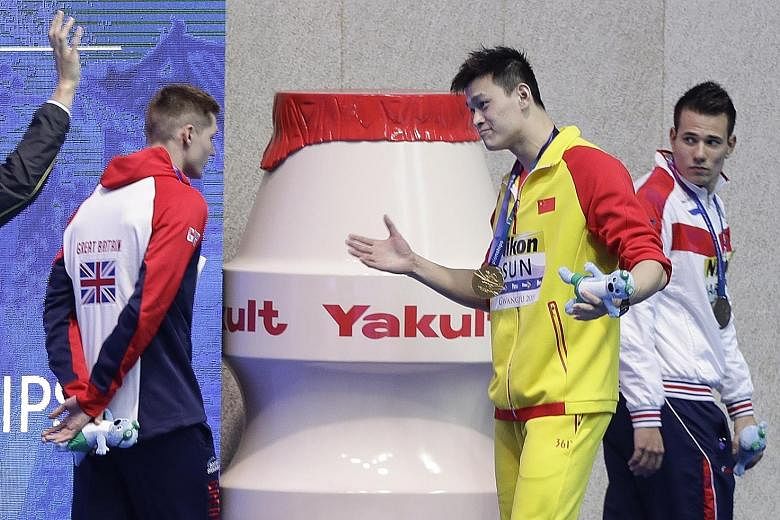PARIS • Olympic organisers will take a dim view of athletes who plan to use the Tokyo 2020 Games to protest against political and social issues.
In his New Year's message, International Olympic Committee (IOC) president Thomas Bach has insisted the quadrennial tournament "must never be a platform to advance political or any other potentially divisive ends".
He also stated his objection to the "growing politicisation of sport" as it "leads to no result and, in the end, just deepens existing divisions".
Rule 50 of the Olympic charter spells out clearly that "no kind of demonstration or political, religious or racial propaganda is permitted in any Olympic sites, venues or other areas" and Bach has urged athletes to adhere to protocol.
He said: "The Games are always a global platform for the athletes and their sporting performances.
"They are not, and must never be, a platform to advance political or any other potentially divisive ends.
"Only in this way can we accomplish our mission to unite the world in peaceful competition.
"Athletes have an essential role to play in respecting this political neutrality on the field of play.
"It is important to note in this regard that there is broad support and understanding among a great majority of athletes that the field of play and ceremonies should not become an arena for political statements or any kind of protests.
"Respecting one's fellow athletes also means respecting their unique Olympic moment and not distracting from it with one's own political views."
IOC Athletes' Commission chairman Kirsty Coventry claimed, after a conference call in October, that most athletes do not feel podium protests are the right venue to broadcast their views.
But the Tokyo organisers have to be prepared for their likelihood, given the spate of incidents that occurred last year.
At last July's Pan-Am Games in Lima, Peru, fencer Race Imboden, who won a bronze medal at the 2016 Rio Olympics, took a knee during the Star-Spangled Banner.
He later tweeted his opposition to United States President Donald Trump, saying he "spreads hate", before listing a raft of issues plaguing the country, including racism, gun control and immigration.
During the same event, in actions reminiscent of the "Black Power salute" at the 1968 Mexico City Olympics, compatriot Gwen Berry raised her right fist to protest against injustice in America "and a president who's making it worse".
The United States Olympic and Paralympic Committee reprimanded the pair, placing them on a 12-month probation, before warning that similar protests at Tokyo will be dealt with more harshly.
Last July's World Swimming Championships in Gwangju, South Korea, was also marred by Britain's Duncan Scott and Australian Mack Horton's refusal to pose with Sun Yang of China on the podium over revelations that he had a row with doping testers in September 2018, leading to a smashed blood vial.
The Court of Arbitration for Sport (CAS) has said that his anti-doping case, in which he is facing a possible eight-year ban for missing a drug test, will not be settled before the middle of this month.
Swimming governing body Fina last January acquitted him of anti-doping violations, agreeing testers had failed to produce adequate identification during the incident at his Hangzhou home.
The ruling outraged the World Anti-Doping Agency, which took the matter to the CAS, resulting in the first public hearing in 20 years in November.
AGENCE FRANCE-PRESSE

